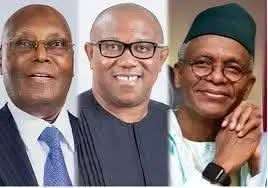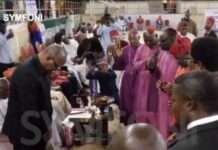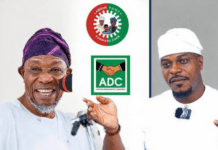The 2027 general elections are still two years away, but the political chessboard is already shifting. One of the most striking developments in recent weeks is the reported collapse of coalition talks involving Peter Obi, Atiku Abubakar, Rabiu Kwankwaso, and Nasir El-Rufai — four influential figures who were expected to unite against the ruling All Progressives Congress (APC).
Peter Obi, the Labour Party’s flagbearer in 2023 and a symbol of hope for millions of young Nigerians, appears to have stepped back from any formal alliance with his former rivals. This decision, though not entirely unexpected, has far-reaching implications. If these political giants choose to contest separately in 2027, Nigeria may be headed for another déjà vu scenario — one in which the opposition’s fragmentation hands power back to the ruling party, yet again.
In 2023, the opposition’s failure to unite enabled Bola Ahmed Tinubu to win the presidency with just over 36% of the vote. Despite widespread dissatisfaction with the status quo, the anti-APC vote was split across three main candidates: Tinubu, Atiku, and Obi. The result? A divided electorate and a victory built not on overwhelming support, but on electoral arithmetic.
The same danger now looms in 2027. Each of these men — Obi, Atiku, Kwankwaso, and El-Rufai — wields significant political capital in different regions and demographics. Peter Obi remains hugely popular in the South-East and among young, urban Nigerians. Atiku still commands loyalty in the North-East and within the PDP structure. Kwankwaso remains a dominant force in Kano and the wider North-West. El-Rufai, despite his controversial legacy, holds sway in parts of the North and among technocratic circles.
Yet, if they all go it alone, their individual strengths may only serve to cancel each other out — creating an open runway for the APC to maintain its grip on power.
Another important dimension to consider is the electoral framework. Under Nigeria’s current system, a candidate can win the presidency without a majority of the total votes cast, as long as they have the highest number of votes and meet the required spread across states. Without electoral reform, a repeat of the 2023 outcome is not just possible — it is probable.
Moreover, there is the risk of voter apathy. In 2023, the youth-led “Obidient” movement brought a new level of enthusiasm to Nigerian politics. But if these voters sense that opposition leaders are more concerned with personal ambition than collective strategy, their motivation may wane. A disillusioned youth demographic would be a blow to any democratic resurgence and a blessing to incumbents.
So, what is the path forward? A true pre-election alliance — not just in words, but in structure and strategy. Whether it involves a consensus candidate, a primary-style internal poll, or a regional power-sharing formula, the opposition must find a way to present a unified front. Nigeria can no longer afford the luxury of divided ambition.
The 2027 presidential race may be a litmus test for whether Nigeria’s opposition leaders have learned from the past — or are determined to repeat it.
In the end, it’s not about who leads the opposition. It’s about coming together for the good of the country









